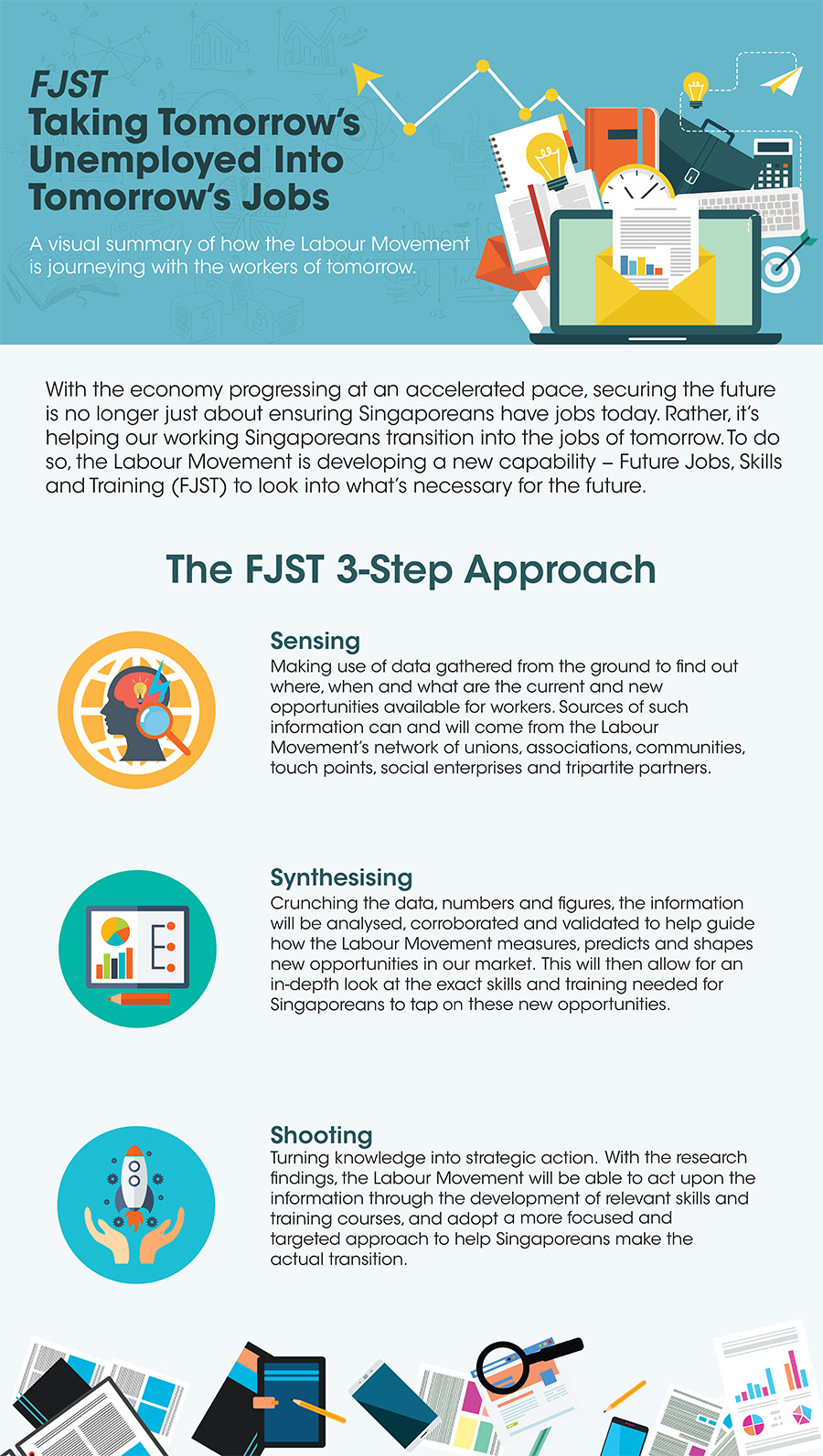If you’ve been following the news, you would have noticed two trending topics.
On one hand, a mixture of structural and cyclical changes have led to a growing number of retrenchments in certain sectors of the economy. Technological disruptions, too, have seen jobs evolve—the jobs of today could well be ‘endangered’ tomorrow.
However, the economy’s transition has also led to new opportunities being created in existing as well as new sectors. Some of the reported bright spots include the information and communications technology sector, cyber security, early childhood care and healthcare. There are, and will be, more others.
Arguably, the facts point at two ends of a spectrum. This then raises a question: How do we bridge this gap, match the workers of today and even tomorrow, with new opportunities available now and those to come in the future. At the same time, how do we address mismatches in skills and training?
Incidentally, this topic had also been the subject of a dialogue which Prime Minister Lee Hsien Loong had with NTUC union leaders. You may read about it here.
Working Long-term
Complementing existing efforts that match unemployed and working Singaporeans alike to available jobs in the market, NTUC had announced, on 1 November 2016, a new capability to explore doing the same for the future.
Dubbed ‘Future Jobs, Skills and Training’, or FJST, this new capability is all about sussing out what the future labour landscape would look like, locate the opportunities, define the necessary skills and training necessary for workers to pick up, and devise a targeted connect workers with these jobs.
The capability, which will officially commence operation on 2 January, the first working day of 2017, will be helmed by NTUC’s Assistant Secretary-General Patrick Tay.
And to help you better grasp the concept, check out the following visual summary of just what FJST is all about:
Interested to find read more about upcoming industries and future jobs? From Med-Tech to Green Building and Clinical Research, our employment landscape is drastically evolving. So come onboard with us and find out what the future has in store for you!


